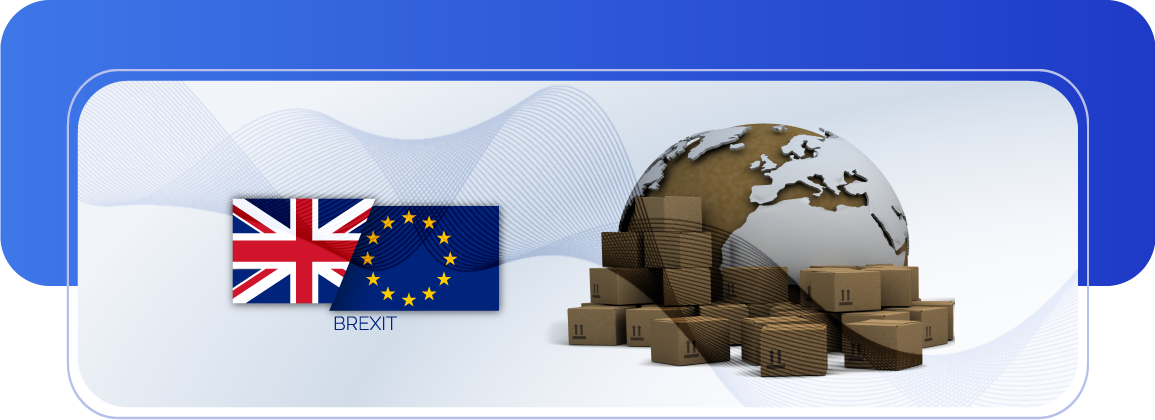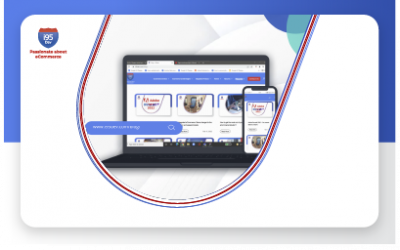8 Strategies to Overcome Internationalization
Challenges in Post Brexit Era

An eCommerce store’s ability to increase sales by enabling businesses to showcase products in new and unexplored markets easily is what attracted a number of businesses to the world of e-commerce. However, it takes more than just an e-commerce store to be successful globally – a great deal of planning and afterthought goes into conquering new territories beyond your frontier.
Probably the reason why Europe has always been a very exciting and challenging market for commerce and trade. In this article, taking Europe as an example, we will look at how aspirational e-commerce businesses can successfully go International. But, before we begin, let us first briefly understand the e-commerce market in Europe.
Europe – The Market Post Brexit
European Commission in May 2016 made announcements which allowed ease of access for European Union members to increase their e-commerce footprint across Europe. The aim of this ruling was to deliver on the ‘Digital single market strategies’ by boosting a three-pronged strategy where tackling geoblocking, making cross-border parcel delivery more affordable and promoting customer trust through better protection and enforcement was give prime importance.
Challenges in going International
Going international is a challenging (and rewarding, if done right) exercise. While businesses have to deal with a number of things, here are the most common challenges that are in store for businesses going global.
- Choosing the right products and making them appealing to the local audience.
- Managing localized content and delivering the right message on platforms like the website, social media, etc.
- Supporting local currency and shipping
- Accounting for local rules and regulations.
- Streamlined regional ownership of product inventories, invoicing and technical infrastructure.
- Providing localized customer support in the native language.
Overcoming the Challenges of Internationalization
No matter how intimidating going international may look, it is still achievable. There have been countless success stories of e-commerce startups that are selling their products and services across the globe, and only getting stronger by the day.
1) Speak their Language
Did you know, 55% of people prefer to shop online in their own language and 53% prefer buying in their own native language? 56% of shoppers even say that having the information in their native language is more important than the price.
Bottom line, if you do not speak their language then they might not buy from you. So it is important to ensure that your e-commerce store supports multiple languages. And it does not end with this. Businesses must ensure that they also have a local customer service team to address any concerns that customers might have.
2) Understand the Local Preferences
The most important step that sets the platform for everything that follows is to thoroughly research and understand local preferences. This understanding of tastes and preference of local audience helps in identifying the product portfolio, building a detailed marketing and sales strategy for penetrating the local market, and even identifying products for future diversifications.
3) Consider Local Warehouses
If your market is big enough then having a local warehouse is a must for sustainability of your business. A local warehouse not only helps in keeping the costs down but also helps in delivering goods faster, which, thanks to Amazon, is now a hygiene factor.
In addition to having a local warehouse, it pays to integrate your e-commerce store with your ERP and warehouse management system. The integration ensures automated data transfer, like orders and inventory, between the systems enabling businesses to fulfill orders faster.
The integration also helps you convert your e-commerce store into a self-service customer portal – your customers can then access information like order status, shipping status, inventory levels, order history, etc. directly in the e-commerce store. This can greatly reduce your dependency on the local customer service team for improved customer experience and lets them focus on other important things like ways to capture the local market.
4) Partner with Right International and Local Shipping Providers
Identifying and partnering with right shipping providers, both for international and local shipping, is key to your success when going global. International shipping providers can help businesses test new products easily, avoid stocking all products locally and offer a larger portfolio of products. The local shipping providers on another hand can help with the last mile delivery of locally stocked products; which is important for a superior customer experience.
For this, businesses can even consider partnering with players like Shipstation. Shipstation, by integrating with the Magento e-commerce store, not only offers multiple shipping options to customers but also provides businesses ability to create and print shipping labels.
5) Support Local Currency and Payment Systems
This goes without saying. Not offering products in the local currency is the biggest mistake a business can make – a mistake that can completely derail the plans of internationalization. It does end with that. Businesses must not only support local currency but also payment providers that they are more familiar with.
For example, in markets like Indonesia, Vietnam, Bangladesh and India the penetration of digital payment mode is still very low; even in the developed world, the payment options differ drastically. Germans prefer ‘Giropay’ as their payment gateway, in the UK the preferred mode of making an online payment is via ‘Paypal’ and the Portuguese prefer ‘Multibanco’. Understanding these preferred payment gateways by countries and integrating them to your web store goes a long way in building trust with the consumers in the target market.
6) Have a Targeted Social Media and Search Engine Strategy
Any e-commerce retailer who has plans to enter foreign markets must remember this – Facebook and Google may have a great reach, but in the era of nationalism and protectionism they are not all encompassing.
A detailed research must be made of the social media and search platforms of the country you are targeting and a specific marketing strategy must be built for each target country. For example, if a US e-commerce retailer plans to sell his sporting apparel in Russia, using Facebook and SEM tactics for Google does not cut ice. They have to leverage the service of ‘VKontakte’ dubbed the Facebook of Russia and develop SEM tactics for Yandex search engine which has a user base of 58%. So a detailed social media and search engine strategy with respect to local preferences should be in place before starting to sell internationally.
7) Go Multi-channel with Third Party Marketplaces
Penetrating a new market can be a challenge even for most well-prepared businesses. This is where third-party marketplaces can help. Third-party marketplaces have a well-established customer base can give businesses the much-needed cushion by allowing businesses to test market for their product with a limited marketing and sales budget.
Global marketplaces like eBay and Amazon are always an option but local marketplaces like ‘Allegro’ (has a strong presence in Eastern Europe), Cdiscount (for selling in France), Fruggo (for Finland), etc. can help as well.
Tip – Selling across multiple channels can be a huge challenge for businesses. Integrating third party market channels with your ERP (directly or via your e-commerce store) can make this extremely convenient. The integration helps by automating and streamlining order flow and inventory sync across channels.
8) ALWAYS Study the Local Culture and Laws Carefully
Finally, this should be the bulwark upon which your whole foreign strategy should be structured upon. Get a complete understanding of the local workings and culture before even thinking to target a market, because a simple gaffe in this would lead to disastrous repercussions.
For example, planning to sell products which even have a trace of pork is a major offense and crime anywhere in the Islamic world. The same applies to companies planning to sell air guns in India due to the myriad of legal rules restricting them.
For further information of our readers, you can even find the articles which you are prohibited from selling on eBay here.
How can i95Dev help you?
We at i95Dev understand what it takes for an eCommerce company to go international. We have worked a diverse range of clientele, spanning various geographies and industries. Our experts spend time with clients to understand their business and needs before arriving at a solution. And it does not end with e-commerce. We understand how critical an ERP system is in the entire picture and our e-commerce and ERP integration expertise helps us in bridging that gap.
We at i95Dev offer multi-channel integrated e-commerce solution that seamlessly integrates with most ERP systems. Our e-commerce solutions support multiple languages, multiple shipping, and multiple payment methods.
Recent Blogs
Enhancing Shipping Precision with Custom Shipping Groups in Adobe Commerce/ Magento
Enhancing Shipping Precision with Custom Shipping Groups in Adobe Commerce/ Magento Author Category Share Three things matter the most when it comes to eCommerce shipping: speed, accuracy,...
Managing Massive Product Catalogs: Why Synchronization is the Key to Efficiency
Managing Massive Product Catalogs: Why Synchronization is the Key to Efficiency Author Category Share The automotive aftermarket industry is vast and highly competitive, requiring businesses...
A Complete Guide to Seamlessly Integrating Adobe Commerce with NetSuite
A Complete Guide to Seamlessly Integrating Adobe Commerce with NetSuite Author Category Share Integrating Adobe Commerce (formerly Magento) with NetSuite ERP can transform the way businesses...



